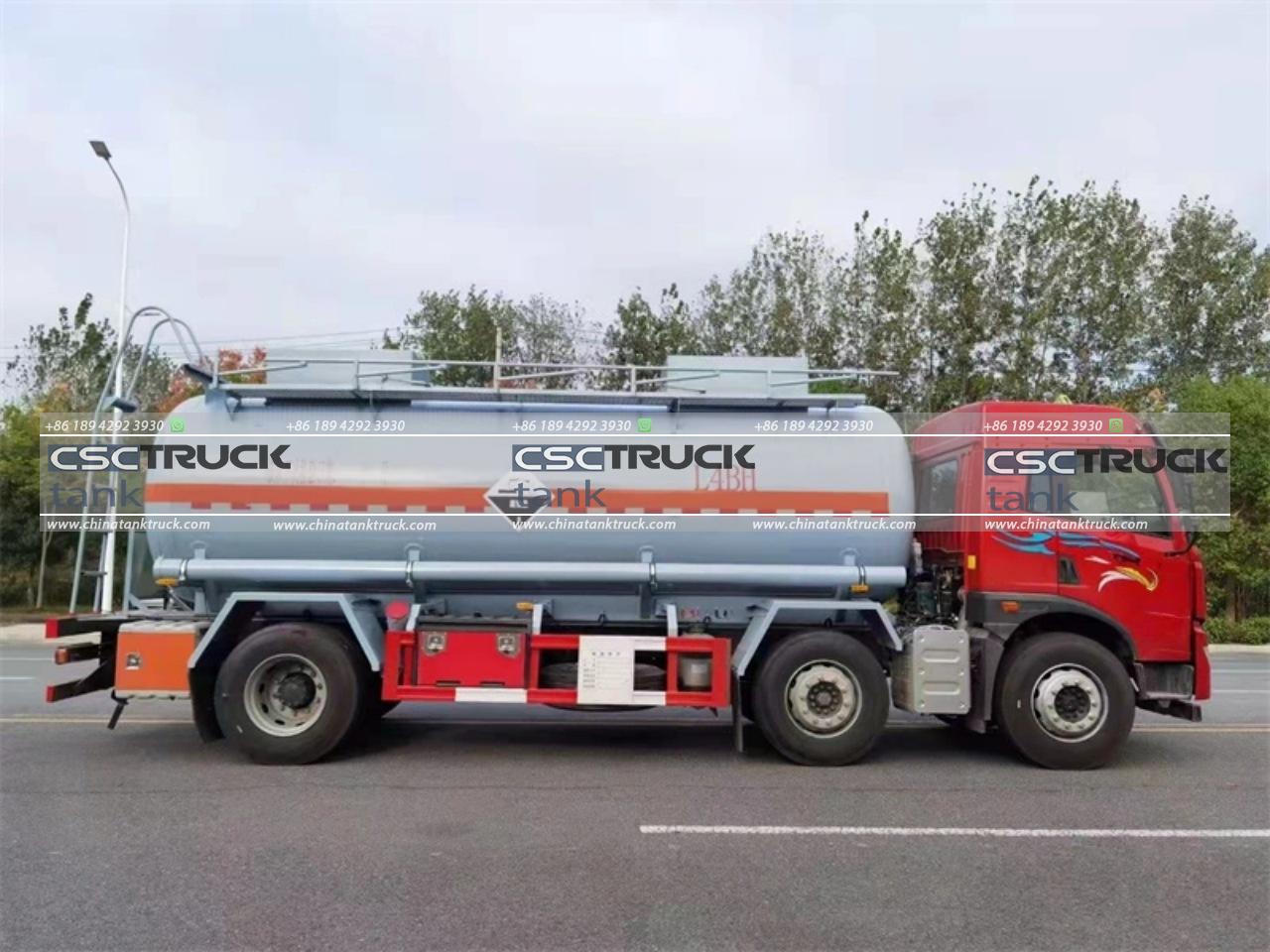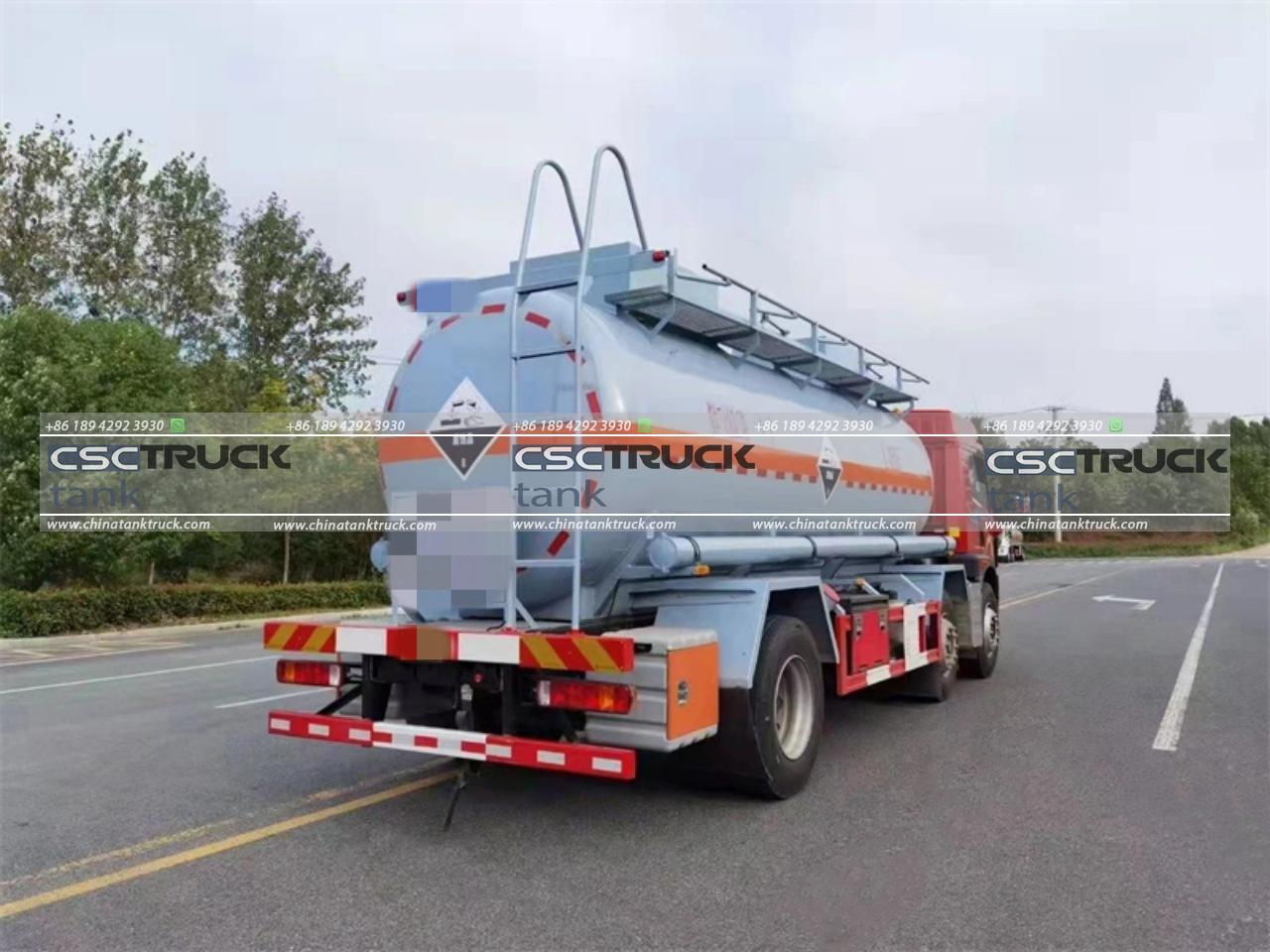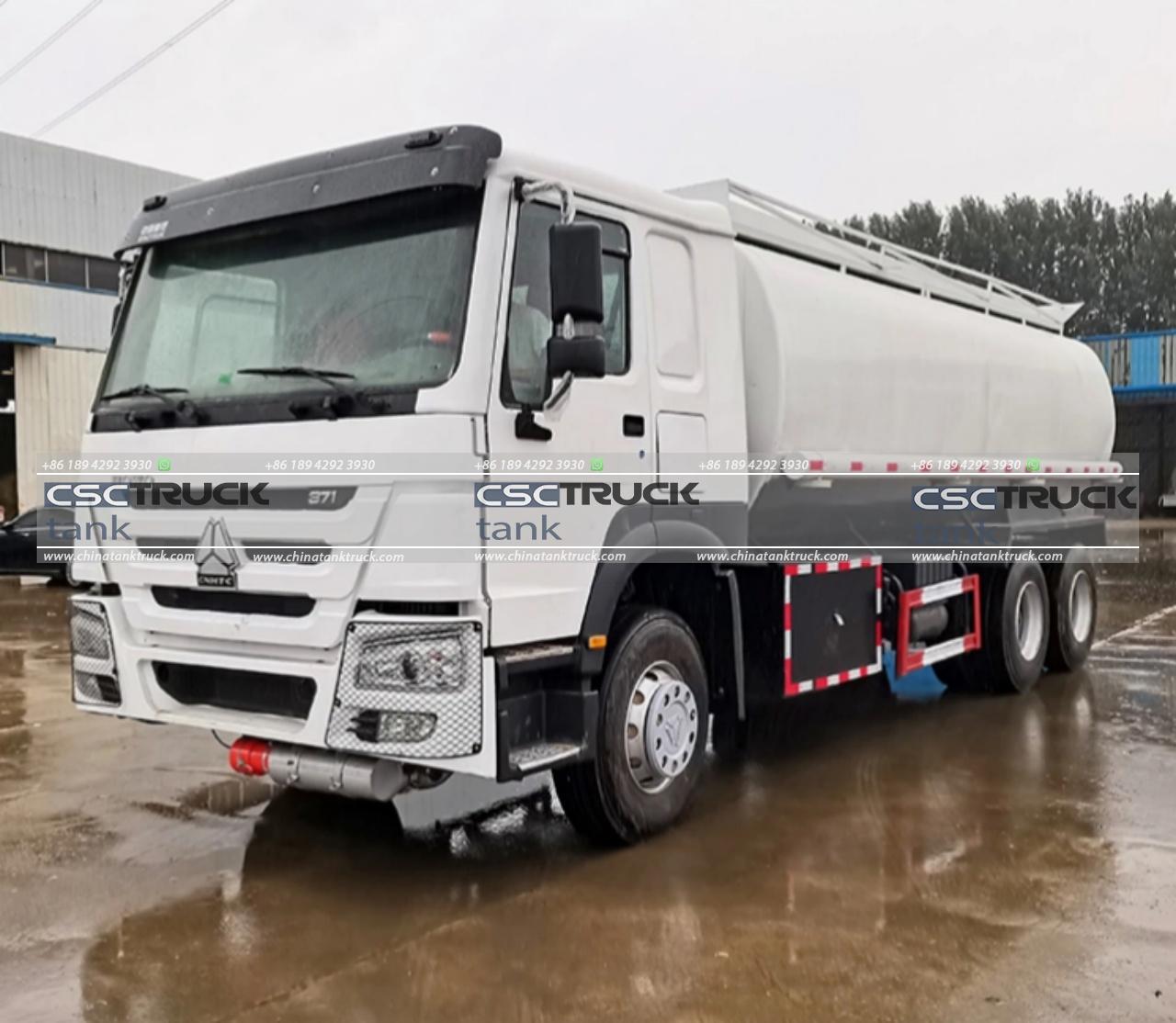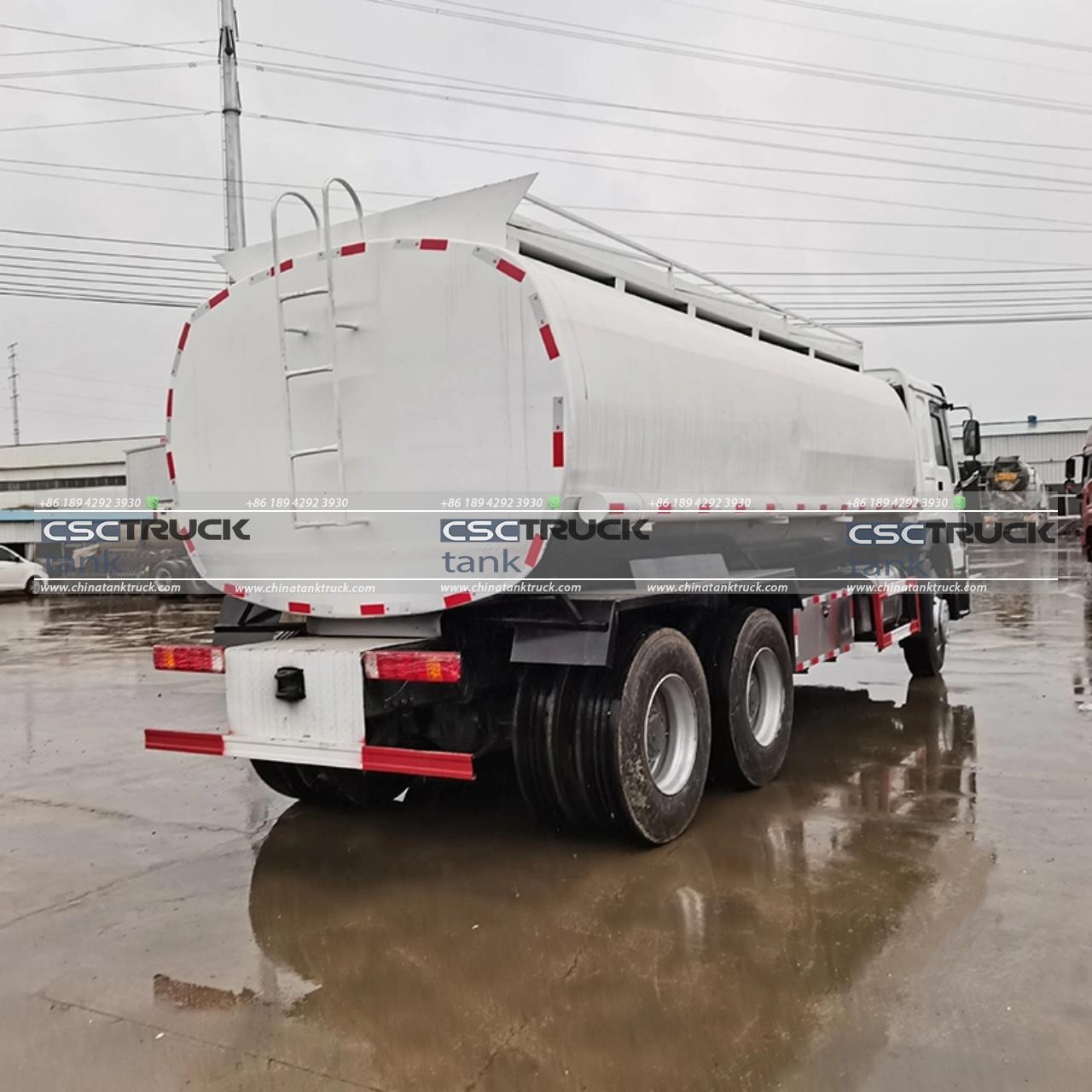In the complex world of industrial logistics, the safe and efficient transport of hazardous chemicals is paramount. Corrosive tank trucks, specifically designed for this purpose, play a critical role in ensuring that these dangerous substances are moved from one location to another without posing a threat to human health, the environment, or property. This article delves into the intricacies of corrosive tank trucks, exploring their features, the importance of safety standards, and what potential buyers should consider when looking for these specialized vehicles.
Understanding Corrosive Tank Trucks
Corrosive tank trucks are specialized vehicles equipped with tanks designed to transport corrosive chemicals safely. These substances, which include acids, bases, and other reactive compounds, can cause severe damage to metals, human tissue, and the environment if not handled properly. Therefore, these trucks are built with materials and designs that can withstand the aggressive nature of the chemicals they carry.

Materials and Construction
The construction materials of corrosive tank trucks are critical to their functionality. The tanks are typically made from high-grade stainless steel, which is highly resistant to corrosion. In some cases, tanks are lined with rubber or other non-reactive materials to provide an additional layer of protection against the chemicals.
The design of the tank is also essential. Tanks are often cylindrical and reinforced to prevent leaks and spills. They are fitted with specialized valves and seals that ensure a tight closure, preventing any accidental release of the contents. Additionally, these trucks are designed to meet stringent industry standards and regulations, ensuring they are safe for transporting hazardous chemicals.
Safety Features
Safety is the foremost priority when dealing with corrosive substances. Corrosive tank trucks are equipped with various safety features to protect both the cargo and the environment. These include:
– Pressure Relief Valves: To prevent over-pressurization, which can lead to explosions or leaks.
– Spill Containment Systems: To contain any accidental spills and prevent them from spreading.
– Emergency Shutoff Valves: Allowing for the immediate cessation of chemical flow in case of an emergency.
– Anti-static Devices: To prevent the build-up of static electricity, which can ignite flammable chemicals.

Compliance with Regulations
Transporting hazardous chemicals is governed by strict regulations to ensure safety. Corrosive tank trucks must comply with national and international standards, such as the Department of Transportation (DOT) regulations in the United States, the European Agreement concerning the International Carriage of Dangerous Goods by Road (ADR), and others. These regulations cover everything from the construction and maintenance of the trucks to the training and certification of drivers.
The Importance of Safety in Transporting Hazardous Chemicals
The safe transport of hazardous chemicals is crucial for several reasons:
1. Human Health: Exposure to corrosive chemicals can cause severe injuries, including burns, respiratory problems, and even death. Ensuring that these substances are transported safely minimizes the risk to drivers, emergency responders, and the general public.
2. Environmental Protection: A spill of corrosive chemicals can have devastating effects on the environment, contaminating water supplies, soil, and air. Safe transport practices help protect ecosystems and prevent long-term environmental damage.
3. Economic Impact: Accidents involving hazardous chemicals can lead to costly cleanups, legal liabilities, and damage to a company’s reputation. Investing in proper transport solutions can save money in the long run by avoiding these potential costs.
4. Legal Compliance: Adhering to regulations is not optional. Companies must comply with safety standards to operate legally. Non-compliance can result in fines, legal action, and the loss of operating licenses.

What to Consider When Buying Corrosive Tank Trucks
When looking for corrosive tank trucks for sale, there are several factors potential buyers should consider to ensure they choose the right vehicle for their needs.
1. Type of Chemical
Different chemicals have different properties and requirements for safe transport. Buyers should ensure that the tank truck is compatible with the specific chemicals they intend to transport. This includes checking the materials of construction and the suitability of any internal linings.
2. Capacity
The capacity of the tank truck should match the volume of chemicals that need to be transported. Buyers should consider their typical load sizes and choose a tank truck that can handle these volumes efficiently. It’s also essential to consider the weight limits and ensure that the truck complies with local road regulations regarding maximum allowable weights.
3. Safety Features
As mentioned earlier, safety features are critical. Buyers should look for trucks equipped with advanced safety systems, including pressure relief valves, spill containment systems, and emergency shutoff valves. Additionally, the presence of anti-static devices and other protective measures should be verified.
4. Regulatory Compliance
Ensure that the tank truck meets all relevant regulatory requirements. This includes compliance with DOT, ADR, or other applicable standards. Buyers should request documentation and certification to verify that the truck is up to standard.
5. Manufacturer and Dealer Reputation
Purchasing from reputable manufacturers and dealers is essential. Buyers should research the company’s history, read reviews, and ask for references. A reliable manufacturer will provide quality products, while a reputable dealer will offer support and service after the sale.
6. Maintenance and Support
Regular maintenance is crucial for the safe operation of corrosive tank trucks. Buyers should consider the availability of maintenance services and spare parts. Some manufacturers and dealers offer maintenance contracts, which can provide peace of mind and ensure the truck remains in optimal condition.
7. Driver Training
Even the best-designed tank truck is only as safe as its operator. Ensuring that drivers are adequately trained in handling hazardous chemicals and operating the truck’s safety features is vital. Some manufacturers and dealers offer training programs, which can be a valuable addition to the purchase.

Conclusion
Corrosive tank trucks are a vital component in the safe and efficient transport of hazardous chemicals. Their specialized design and construction ensure that these dangerous substances are moved securely, protecting human health, the environment, and property. When considering the purchase of a corrosive tank truck, buyers must evaluate factors such as chemical compatibility, capacity, safety features, regulatory compliance, manufacturer reputation, and maintenance support. By making informed decisions and prioritizing safety, companies can ensure the safe transport of hazardous chemicals, thereby fulfilling their legal obligations and safeguarding their operations against potential risks.

